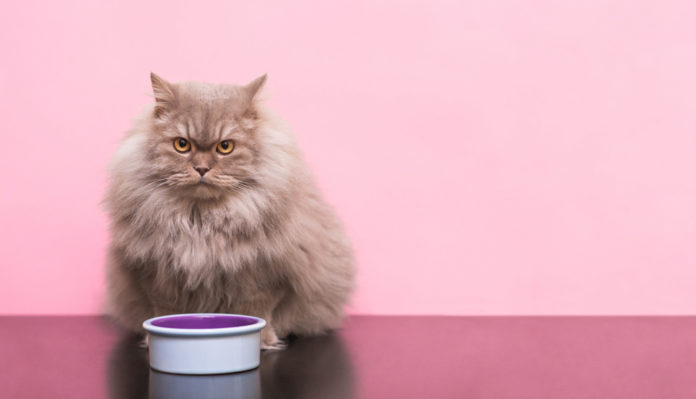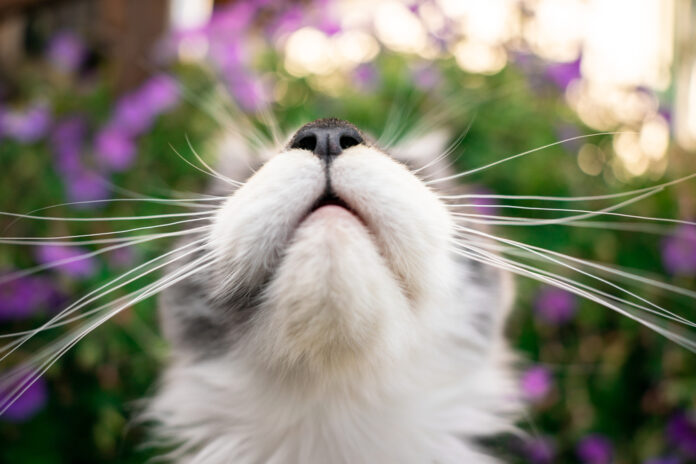Your cat’s microbiome

We still have a lot to learn about the feline microbiome, but what we do know can help us take important steps to improving and maintaining our cats’ gut health.
Over the last decade, researchers have gained a better understanding of the human microbiome and its importance to health and well-being. We now know that the trillions of bacteria living in and around our bodies contribute to health or disease, and even change how our brains function. We also know that each individual has a unique microbiome that changes on a daily basis. More recently, researchers have begun looking at the microbiomes of animals, including cats, and are finding some of these same characteristics. Let’s look at the feline microbiome, and what you can do to help support your own cat’s gut health.
What does “microbiome” mean?
The microbiome is a community of bacteria and other microbes that inhabit living organisms and impact overall health in many different ways. While we generally think of bacteria as the organisms that make us sick, the microbiome is home to trillions of beneficial bacteria that help digest food, shape the immune system, and maintain a healthy weight.
A cat’s gut microbiome is a complex ecosystem of organisms that can be affected by many factors — including diet, underlying biology, and the development of his microbiome (i.e. the environment he was raised in, and the food he grew up eating). For this reason, there can be a lot of diversity between the microbiomes of different cats.
The feline microbiome – research is ongoing
- AnimalBiome is a company that has been testing thousands of cat microbiome samples over time. “We have used this data set to understand the core microbiome in healthy cats, and to explore how the microbiome differs in cats with chronic enteropathies (often referred to as inflammatory bowel disease), gastrointestinal lymphoma, and feline immunodeficiency virus (FIV),” says CEO Holly H. Ganz, PhD.
- Dr. Ryan Honaker, Director of Microbiology at Nom Nom, is an expert in microbiome manipulation, infection therapeutics, and microbial community profiling. “Scientists are just beginning to understand some of the immense complexities of the human microbiome, and there have been far fewer studies done on cats,” he says. The company has been collecting microbiome data since the end of 2018. “There’s so much we don’t know, but such a potential to make an impact on feline health across a variety of illnesses,” says Dr. Honaker. “We know there’s a large degree of variability between cats, and their microbiome is complex, which means we need a lot of data to be able to make sense of it.”
A cat’s gut microbiome is a complex ecosystem of organisms that can be affected by many factors.

Keeping your cat’s microbiome healthy
- A minimally-processed raw or gently-cooked diet made from whole food ingredients is key to keeping your cat’s microbiome as healthy as possible. “Both raw and gently-cooked diets are excellent for overall gut health,” says Jodi Ziskin, a Certified Pet Nutrition Consultant. “There are more bio-appropriate foods available now than ever before, making it easier for people to provide an excellent real food diet to their cats.” Jodi also stresses the importance of avoiding by-products, rendered ingredients, fillers, and artificial additives and flavorings, as these can disrupt the gut microbiome.
- Adding a good probiotic supplement, under the guidance of a holistic or integrative veterinarian, can also help. “Probiotics can benefit all cats, but especially those with existing gastrointestinal issues,” says Lori. “It is important to offer a product that’s formulated to withstand the feline’s stronger stomach acids. Probiotics regulate gut flora, help the body absorb and assimilate nutrients, strengthen the immune system, and help keep the digestive tract in working order.”
- Prebiotics also play an important role in restoring and maintaining gut health. They nourish and support the growth of good bacteria, which in turn help to control the bad bacteria. “We are increasingly aware that prebiotics — substances that promote a healthy environment in the gut for the good bacteria — are probably as important as the bacteria themselves,” says holistic veterinarian Dr. Andrea Tasi. Again, it’s important to work with your own vet when choosing and using a prebiotic product.
- For cats with severe microbiome imbalances, a fecal transplant using a procedure called Microbiome Restorative Therapy (MBRT) may be the answer to restoring gut health. While this therapy is fairly new to veterinary medicine, a growing number of integrative vets are offering it. AnimalBiome’s KittyBiome Gut Restoration Supplement is a non-invasive alternative to surgical fecal microbiota transplants. “This oral fecal transplant capsule reintroduces beneficial microbes from healthy cats,” says Dr. Ganz.
The state of your cat’s microbiome can have far-reaching effects on her general health, which means any imbalance can significantly impact her well-being, triggering anything from chronic diarrhea, constipation, vomiting, or IBD, to skin issues or even behavior problems. Taking steps to balance your cat’s microbiome will help keep her balanced and healthy overall!



